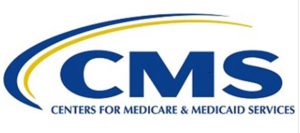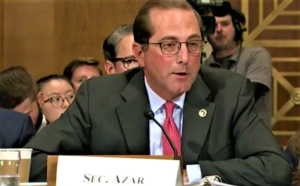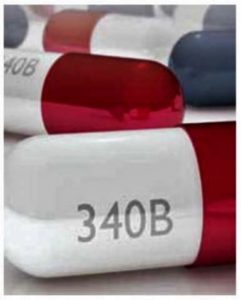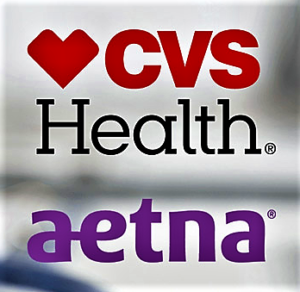- 5 questions on the Trump admin’s bid to mandate prices in drug ads (biopharmadive.com)
The Trump administration took one of its more combative moves on drug pricing Monday, when Health and Human Services Secretary Alex Azar introduced a proposal requiring drugmakers to disclose list prices in television advertisements...The proposal sets up what is expected to be a confrontation between the drug industry and the federal government. It also raises a slate of legal, political and regulatory questions that will be debated in the coming months. Here are five of the most pressing, and what experts are saying about them:
- Can the administration actually do this?
- Would putting prices in TV ads actually help?
- Will PhRMA sue?
- Why did the Trump administration choose to make this a signature proposal?
- Which drugmakers would hate this most?
- Nearly 800 Dietary Supplements Tainted With Unapproved Ingredients Such As Viagra And Steroids (techtimes.com)
...researchers of a new study published in JAMA Network Open found that nearly 800 dietary supplements were found to be adulterated with unapproved drugs. Specifically, from 2007 to 2016, there were 776 dietary supplements identified to contain one or more hidden drug ingredients, implicating 146 dietary supplement companies...Most of the adulterated dietary supplements were marketed for sexual enhancement, weight loss, and muscle building. The most common hidden drug ingredient in sexual enhancement supplements is sildenafil, the active ingredient in Viagra, while the most common additive in weight loss supplements is banned weight-loss drug sibutramine, and synthetic steroid drugs for the muscle building supplements...experts are now urging the FDA to take urgent action to have these products removed from the market. Such products pose serious health risks, especially to users who are unaware that the supplements they are taking are actually adulterated with drugs...
- AbbVie’s not the only one facing kickbacks scrutiny. Add Biogen, Sanofi, Gilead and more (fiercepharma.com)
At first glance, it seems like a logical idea: pharma companies teaching doctors' staff how to handle patients using their drugs and helping staffers with reimbursement questions. But a slew of companies are discovering that it's not so simple...In fact, it might just be against the law...Biogen, Sanofi and Gilead Sciences are under investigation by federal and state authorities for offering reimbursement services and clinical education programs, the companies have disclosed in securities filings. Additionally, Bayer, Amgen and Eli Lilly face whistleblower lawsuits over the issue...In Sanofi’s case, the U.S. Attorney’s Office...sent the company a civil investigative deman...“requesting documents and information relating to Sanofi US’s certified diabetes educator program during the period from 2007 to the present.”...Gilead....received a voluntary request from the U.S. Attorney’s Office...seeking information “related to our reimbursement support offerings, clinical education programs and interactions with specialty pharmacies for Sovaldi and Harvoni...
- CMS proposes rule to streamline Medicare compliance (fiercehealthcare.com)
CMS took the latest step in its Patients over Paperwork initiative...issuing a proposed rule that would eliminate or update a slew of regulations deemed “unnecessary, obsolete or excessively burdensome” on providers...Should the rule be finalized, the Centers for Medicare & Medicaid Services estimates that it would save providers $1.12 billion each year and eliminate millions of hours in administrative time. Through 2021, CMS projects $5.2 billion in total savings and 53 million hours of administrative burden eliminated...Much of the rule focuses on streamlining CMS’ conditions of participation and conditions for coverage, which the agency says will allow providers to operate more fluidly and efficiently without impacting patient safety and care quality. Some of the key changes the rule proposes include:
- Allowing health systems to use an integrated quality assessment and improvement platform across all their member hospitals.
- Creating a simpler process for providers to order portable X-ray machines and updating the requirements for portable X-ray technologists.
- Easing requirements for hospitals and ambulatory surgery centers for conducting physicals and collecting patient histories ahead of procedures.
- Eliminating a requirement for critical access hospitals to disclose people with a financial interest in the facility, as CMS also obtains that information outside of compliance with the conditions of participation.
- Azar deals woe to DTC—and a slap to Big Pharma—with vow to force prices into drug ads (fiercepharma.com)U.S. TV drug ads to carry information on prices (reuters.com)
Pharma might have thought it could fend off the Trump administration's bid to get drug prices into consumer advertising, but it was wrong...Even a last-ditch set of concessions—announced by PhRMA Monday morning—couldn't forestall HHS Secretary Alex Azar's own proposal Monday afternoon. The pharma plan was "a small step," Azar said, before saying he'd require DTC television ads to include the list price on all $35-and-up drugs covered by Medicare or Medicaid, which is essentially every drug in the pharmaceutical universe...And Azar didn't just counter. He took direct aim at the just-announced PhRMA idea.
- Nevada State Board of Pharmacy – Newsletter – October 2018 (bop.nv.gov)AB 474 (leg.state.nv.us)LCB File No. R047-18 (leg.state.nv.us)
- Assembly Bill 474
- National Pharmacy Compliance News
- FDA Issues Final Guidance Policy on Outsourcing Facilities
- EU-US Mutual Recognition Agreement Now Operational Between FDA and 12 Member States
- US Surgeon General Advisory Urges More Individuals to Carry Naloxone
- Expanding Pharmacists’ Scope of Practice Linked to Improved Cardiovascular Outcomes
- Pharmacists Are Critical to Drug Supply Chain Integrity, States FIP
- Emergency Department Visits for Opioid Overdoses Rose 30%
- Health Management Associates to pay $260 million to settle criminal charges for allegedly defrauding Medicare, Medicaid (cnbc.com)Health Management Associates Pays $260 Million To Settle Whistleblower Lawsuits (marketwatch.com)
Health Management Associates agreed to pay more than $260 million and entered a deferred prosecution agreement to settle criminal charges for allegedly paying physicians kickbacks and defrauding Medicare, Medicaid and other federal programs...HMA, which was acquired by the for-profit hospital Community Health Systems in 2014, allegedly paid physicians in exchange for patient referrals and submitted inflated claims for emergency department facility fees to federal health insurance programs...HMA pressured emergency room physicians, including through threats of termination, to increase the number of inpatient admissions from emergency departments — even when those admissions were medically unnecessary...
- EU places China’s Zhejiang Huahai under increased supervision (reuters.com)
European authorities are placing Zhejiang Huahai Pharmaceutical Co Ltd under higher supervision, the European Medicines Agency said...the latest crackdown on the Chinese firm after a probable carcinogen was found in its blood pressure drug valsartan...EU authorities will now supervise the manufacture of other active substances produced by Zhejiang Huahai more closely...European authorities said late last month they had found that Huahai did not comply with good manufacturing practices and that the company’s factory in Linhai, China, was no longer authorized to produce valsartan...European and North American regulators last month found a second toxin in Valsartan that may cause cancer in humans...low levels of a carcinogen have now also been found in irbesartan made by Aurobindo Pharma, with the supply in the EU...being suspended.
- Banner Health, Ascension executives join hundreds of hospital CEOs defending 340B program (fiercehealthcare.com)
CEOs from more than 700 hospitals sent a letter to congressional leaders...calling on them to protect the 340B drug discount program, among them Banner Desert Medical Center...The 340B program requires drugmakers to provide discounted drugs to hospitals, health centers, and other healthcare providers that serve disproportionate numbers of low-income and rural patients...But the program has been under increased scrutiny after enjoying years of bipartisan popularity, including three expansions in Congress. Critics argue that hospitals are taking advantage of the discounts to line their wallets and are snapping up oncology providers to boost the number of pricey specialty drugs they can prescribe under the program...the letter said the group is concerned cuts to the 340B program would increase the prices of need and existing drugs...In our larger disproportionate share hospitals, the program enables us to provide a wider range of comprehensive services to people who are uninsured and traditionally underserved—services that would need to be scaled back along with any 340B reductions...For our more rural critical access hospitals, cuts to 340B would threaten the only places for people in the communities to get their care in the first place...
- DOJ wants Aetna, CVS Health to divest Part D plans before merger approval (healthcarefinancenews.com)
CVS Health and Aetna need to divest some of their Medicare Part D assets before the Department of Justice will grant approval for their proposed $69 billion mega-merger...The DOJ is expected to conclude its review of the deal once the companies have satisfied the antitrust concern...Aetna has a 9 percent market share among Part D plans while CVS Health has a 24 percent market share, with overlap in some markets...California Insurance Commissioner Dave Jones asked the DOJ to block the merger over Part D concerns, saying that reducing competition for the drug prescription plans would likely result in higher premiums.CVS has 6.1 million Part D members; UnitedHealth, 5.36 million; Humana 4.9 million; Express Scripts 2.5 million; and Aetna 2.2 million...The merger...would add a pharmacy benefit manager to one of the nation's largest health insurance companies...Approval for the vertical integration between payer and PBM has shown more success than the horizontal mergers proposed between Aetna, Humana and Anthem, Cigna. The DOJ blocked both mega bids on the basis of antitrust concerns.










